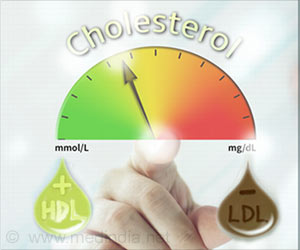US researchers say that the current national cholesterol guidelines are not effectively identifying the majority of individuals who will develop fatal and non-fatal cardiovascular events.
American researchers are requesting a change in the current national cholesterol guidelines; the reason being that the current recommended levels of cholesterol fail to effectively identify the majority of individuals who will develop fatal and non-fatal cardiovascular events.
Dr. Gregg C. Fonarow, Eliot Corday Professor of Cardiovascular Medicine and Science at the David Geffen School of Medicine at UCLA, said that while the risk of cardiovascular events increases substantially with LDL levels above 40 mg/dL, current national cholesterol guidelines consider LDL levels less than 100 mg/dL acceptable for many individuals.He came to this conclusion after conducting a study, which found that nearly 75 percent of patients hospitalised for a heart attack had cholesterol levels that would indicate they were not at high risk for a cardiovascular event.
Specifically, these patients had low-density lipoprotein (LDL) cholesterol levels that met current guidelines, and close to half had LDL levels classified in guidelines as optimal.
"Almost 75 percent of heart attack patients fell within recommended targets for LDL cholesterol, demonstrating that the current guidelines may not be low enough to cut heart attack risk in most who could benefit," said Fonarow, the study's principal investigator.
Researchers also found that more than half of patients hospitalised for a heart attack had poor high-density lipoprotein (HDL) cholesterol levels, according to national guidelines.
The study suggests that lowering guideline targets for LDL cholesterol for those at risk for cardiovascular disease, as well as developing better treatments to raise HDL cholesterol, may help reduce the number of patients hospitalized for heart attack in the future.
Advertisement
The study is published in the January issue of the American Heart Journal.
Advertisement
TAN













